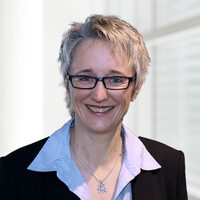The year 2020 has brought a great deal of change. In this edition of BEYOND SURFACES we include a “special”, giving you a unique insight into how our employees around the world have taken on the challenge of the initial months of the Covid-19 pandemic with commitment and creativity. We are also taking the magazine title quite literally and are looking “beyond surfaces” into the second pillar of the Oerlikon Group, our synthetic-fiber business.
With this edition, we are celebrating a small but important anniversary: The first issue of BEYOND SURFACES was published five years ago. Two years earlier, Metco had joined the Oerlikon Group, and this magazine was created to introduce our customers to the solutions offered by the two brands, Oerlikon Balzers and Oerlikon Metco.
Since then, the Oerlikon Group has undergone significant changes. Today, it is a “Powerhouse of Materials and Surface Solutions.” Our newest business unit, Additive Manufacturing, which focuses on the industrialization of additive manufacturing methods, represents an important augmentation of the Oerlikon Balzers and Oerlikon Metco portfolio.





































